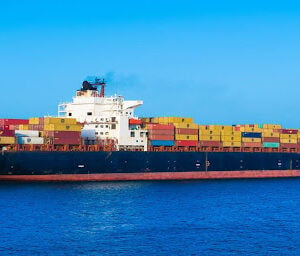The Role Of A Brokerage Agent In Freight Transportation
By Andie
The role of a brokerage agent in freight transportation is an important one, though it may not be widely understood. Freight brokers are responsible for facilitating the movement of goods from one point to another, as well as ensuring that all transactions are conducted in accordance with applicable laws and regulations. This article will provide an overview of the duties and responsibilities of a brokerage agent, as well as the benefits they offer to their clients.
Freight brokers play an essential role in connecting manufacturers and suppliers with transportation companies. This allows them to arrange shipments efficiently while ensuring that they meet regulatory requirements such as customs clearance and insurance coverage. They must also have knowledge of the various types of freight available, including air freight, ocean freight, rail freight, and truckload shipments. Furthermore, they should be familiar with the different routes that can be used to move goods between different locations.
Finally, brokers typically negotiate contracts between shipping companies and their clients on behalf of their clients. They must have strong negotiation skills in order to secure favorable rates for their customers while also making sure that all contractual obligations are met. In this way, brokerage agents can provide invaluable services to their customers by helping them make informed decisions about how best to transport their goods.
Definition Of A Brokerage Agent
A brokerage agent in freight transportation is a professional intermediary between the freight company and its customers. They are responsible for arranging the shipment of goods from one location to another, negotiating rates on behalf of their clients and ensuring that all relevant paperwork is filled out correctly. Brokerage agents may also advise their clients on the most cost-effective and efficient routes for shipping goods.
The role of a brokerage agent requires strong organizational skills and knowledge of both the local and global markets. They must be able to identify potential hazards or delays along any given route, as well as ensure that cargo is properly insured against any potential losses during transit. Furthermore, they need to have an understanding of regulations governing international trade so they can help their clients navigate these rules when necessary.
In addition, brokerage agents often work closely with customs brokers to make sure shipments clear customs quickly and easily. By utilizing their expertise in both domestic and international shipping regulations, brokerage agents can provide valuable assistance in expediting shipments for their customers.
Responsibilities Of A Brokerage Agent
A brokerage agent is a professional responsible for coordinating freight transportation services. This includes activities such as transport planning, evaluating carrier performance, and managing the shipment process. As part of their role, they are also responsible for ensuring compliance with applicable regulations and laws.
The responsibilities of a brokerage agent involve several tasks. They are required to develop relationships with shippers and carriers in order to understand their needs and provide them with cost-effective shipping solutions. Brokerage agents must also be able to negotiate freight rates on behalf of their clients. Additionally, they ensure that all necessary …read more
Source:: Social Media Explorer








